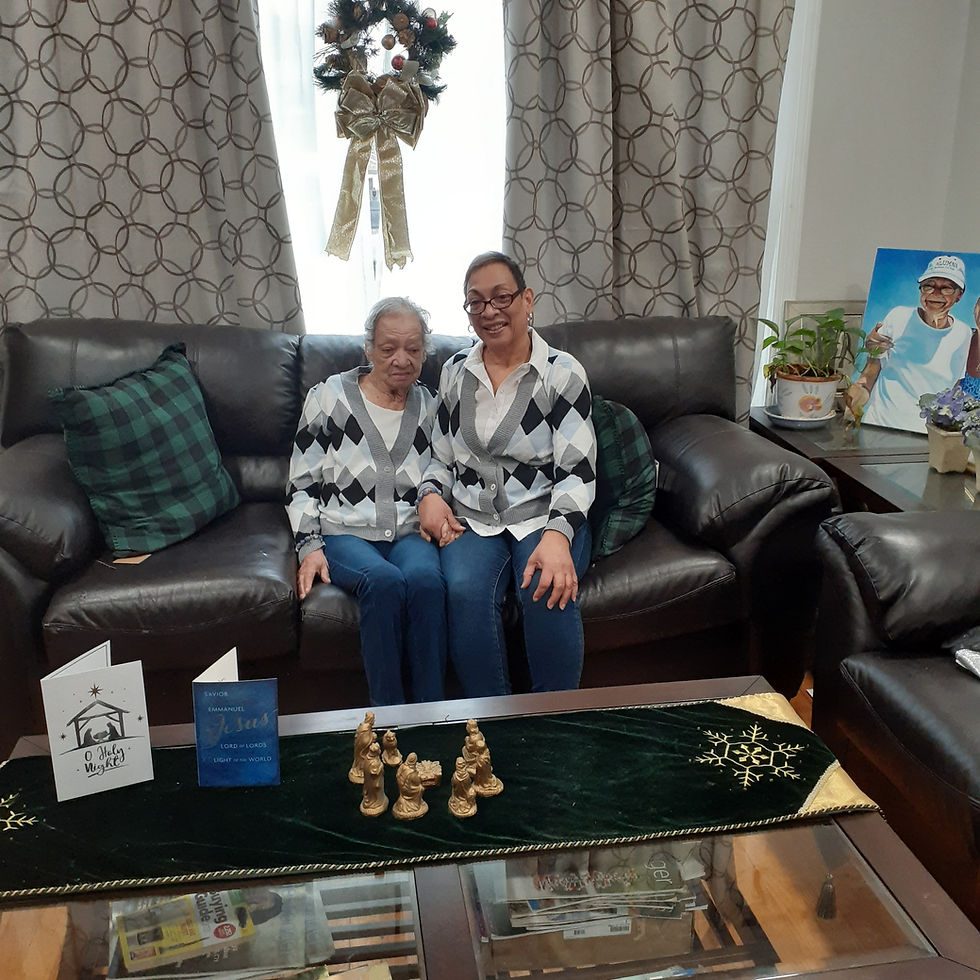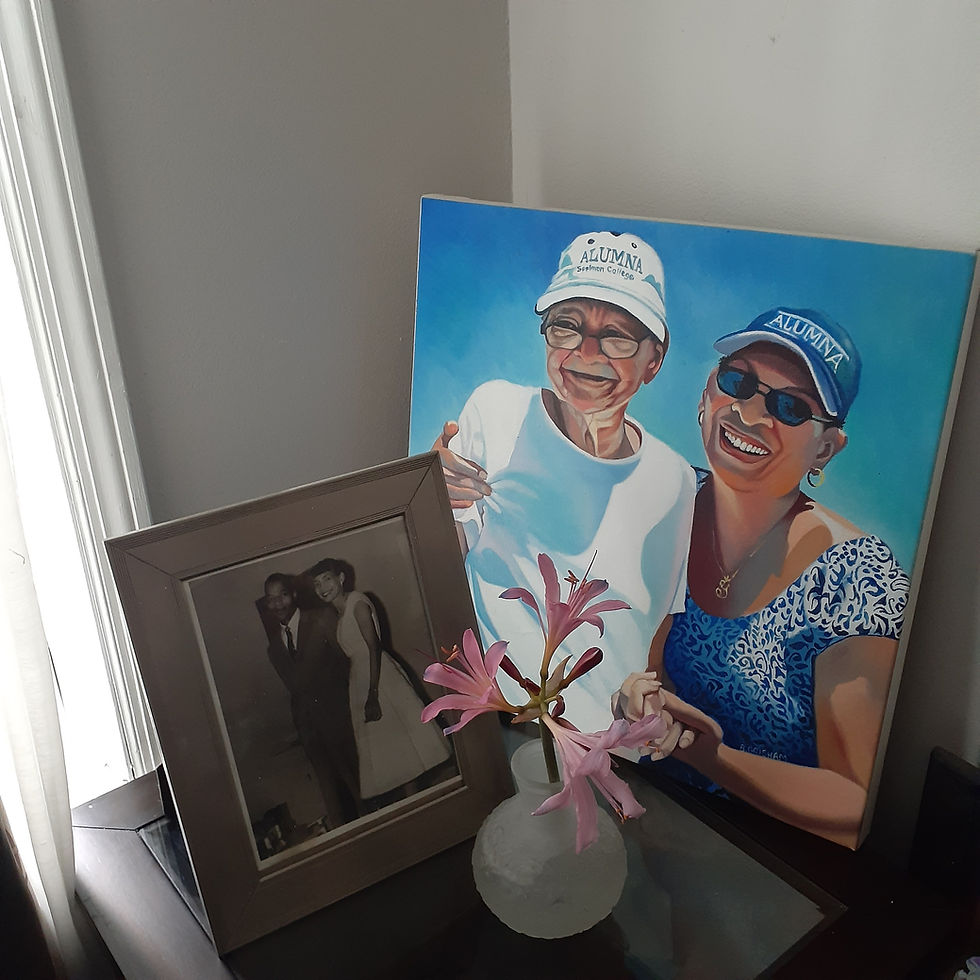A Daughter’s Journey Through Alzheimer’s
- lrmartin0
- Jul 29, 2025
- 3 min read
Updated: Aug 4, 2025
Shared by Sheri Yarbrough:

When Sheri Yarbrough heard the word Alzheimer’s in a routine doctor’s visit in 2010, it was the first time the word meant something personal. Before that day, Alzheimer’s was just a distant term, something she had heard in passing, but never fully understood. That changed when her mother, Muriel Yarbrough, was diagnosed at the age of 82.
Sheri is the youngest of three siblings and
knew at an early age that she would be the one to care for their aging parents. The news of the diagnosis brought with it a wave of confusion and fear, but also a sense of quiet determination. She quickly realized that this would be her journey to carry and accepted the role of primary caregiver.
Muriel, now 97, is more than a patient or a diagnosis. She is a mother, a teacher in her own right, and the heart of her family. Sheri, who holds a Ph.D. in Educational Policy Studies, found herself immersed in a whole new form of education, one not taught in universities. The medical teams at Rush and Northwestern became her professors. The Alzheimer’s Association became her guide. She dove into webinars, support groups, and online courses, doing everything she could to become the caregiver her mother needed.
Eighteen months after the Alzheimer’s diagnosis, life dealt another blow, Muriel was diagnosed with breast cancer. Two life-altering illnesses, one after the other challenged her to decide how she was going to lead their care journey.

The burden was heavy, and at times overwhelming. “At the beginning of our journey, I lost sight of what I could still hold on to,” Sheri admits. “It’s so easy to focus on what you're losing, what’s slipping away. But I had to learn how to focus on what was still there—the laughter, stories, and the touch of her hand.”
One of the greatest lessons Sheri has learned is the importance of support. She emphasizes that caregiving should never be a solo mission. “Include yourself,” she says. “This is a team effort, and you are the team’s leader. You are only one person, so you have to have the support of family, friends, and professionals. You’re not alone, and you shouldn’t try to be.” She also reminds others not to become so consumed by the logistics and caregiving tasks that they forget the person they’re caring for. “Don’t lose sight of the memories you’ve shared. Cherish the quiet moments. Hold on to the history you have together.”
Today, Sheri continues to care for her mother with strength, grace, and a heart full of love. Her story is one of acceptance, resilience, and deep devotion; an honest reflection of what it means to love someone through Alzheimer’s.
“The most important thing my mom taught me on this journey is to live in the moment.” Lessons from a care journey isn’t an education that you learn from a book. It is one that comes from the courage to show up, day after day, for someone you love.
Get the emotional support you need by connecting with others with our virtual support groups
A support group is a regularly scheduled virtual gathering of people with Alzheimer’s disease or another dementia, family, friends or caregivers who interact around issues relating to dementia. Groups can have social, educational and/or support components and are facilitated by individuals who have received training from the Alzheimer's Association. Support Groups | Illinois Chapter | alz.org








Comments